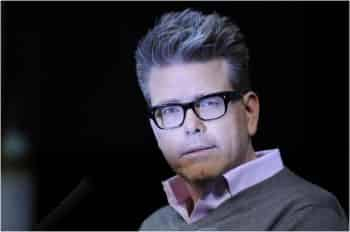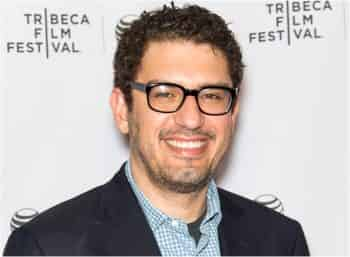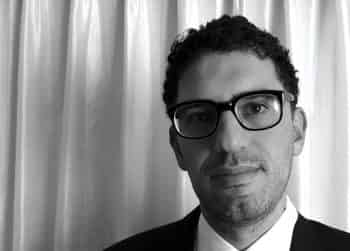
Sam Esmail
Writing process
We really admire Ellroy’s outspokenness, which sometimes gives us pearls like this one: “It’s disingenuous when writers say that they have no control over their characters, that they have a life of their own. Here’s what happens: you create the characters rigorously, and make clear choices about their behavior. You reach junctures in your stories and are confronted with dramatic options. You choose one or the other.” (Nathaniel Rich. “Interviews: James Ellroy,” The Art of Fiction No. 201).
Naturally, not everyone has the same writing style. Christopher McQuarrie tells us about his: “We always start with an ending, so we always know where the story is going; knowing. However, never to stay married to it. I’ve stayed married to endings before and it’s been disastrous. You’ve got to let the story take its own course.” (“Christopher McQuarrie Gets Verbal on the Usual Suspects,” cinetropolis.net, April 13, 2014).
On a similar note, let’s look at this excerpt from and interview with Sam Esmail on the creation of the plot for the second season of Mr. Robot:
“Interviewer: Can we talk about Angela a little bit? Her scenes were probably my favorite this season — you have that emotional karaoke scene, but you also have that episode where she’s doing the hack that set my heart racing. Had you always envisioned this type of role for her?
Sam Esmail: No, no. This is the great thing about TV is that when you discover certain strengths in an actor you can then begin to exploit them in really fun ways. I was shooting the season finale last year, the shoe store scene, and she says that line about the Prada. I’m watching this scene in the edit bay, and I don’t know, is she enjoying this or is she embarrassed, is she shameful about how she treated this poor guy or is she actually getting off on it? I actually thought, Portia has this weird, uncanny ability to be right there in the middle. She was the one that spoke to me and guided what the journey of her character was gonna be this season.” (Jen Chaney , Gazelle Emami and Matt Zoller Seitz. “Mr. Robot Creator Sam Esmail on How He Handles Criticism of the Show,” www.vulture.com, September 28, 2016).
We can think about how actors bring a skill set to a project that the writer couldn’t have anticipated during the original creation. During any creative process, we make little choices that we hadn’t predicted 10 pages or 10 stories earlier. It’s these little alterations that open up a wide range of new options for the author. Therein lies the flexibility that seems to guide an author.
What to write when everything’s been said? (
We like reading about other writers’ creative processes. We came across this interview with Sam Esmail, the multitalented person behind the Mr. Robot TV series, in which he discusses his primary concern in plot development: “And I was hamstrung in the first season because I was like, well, this is really only the first act, I need this thing to happen, I need this plot, whatever, the hack thing to happen. Because for me, plot is always an excuse to explore characters. ‘Cause who cares? The plot is the same plot that we see in basically every movie and TV show. But how we tell that story, what choices these characters could make …” (Jen Chaney , Gazelle Emami and Matt Zoller Seitz. “Mr. Robot Creator Sam Esmail on How He Handles Criticism of the Show,” www.vulture.com, September 28, 2016).
This is especially interesting to read when paired with the following quote from Christopher McQuarrie, who’s had a long career as a screenwriter for the movies and, more recently, as a director. Here he talks about writing The Usual Suspects: “There’s a part of us that wants to see the bad guy get away, that wants to see this guy outsmart authority, and beat the system. That to me is when a movie is really good: when no one is an idiot. Early on in the development of the Suspects script someone asked me why Kujan was chasing this guy Keaton. What does he care? Did Keaton kill his partner? No, he’s just passionate about his job. You don’t have to be Vincent Van Gogh to be passionate about what you do […] So many movies use revenge as motivation for characters. But I think that, unless you’re analyzing the mindset itself, it’s a bad motivation.” (“Christopher McQuarrie Gets Verbal on The Usual Suspects,” cinetropolis.net, April 13, 2014).
These two quotes may come from different places, but together, they say something about how you can’t always approach characterization directly. Otherwise, verbalizing a character’s choices can take away the spontaneity and contradictions that are inherent to human behaviour.






